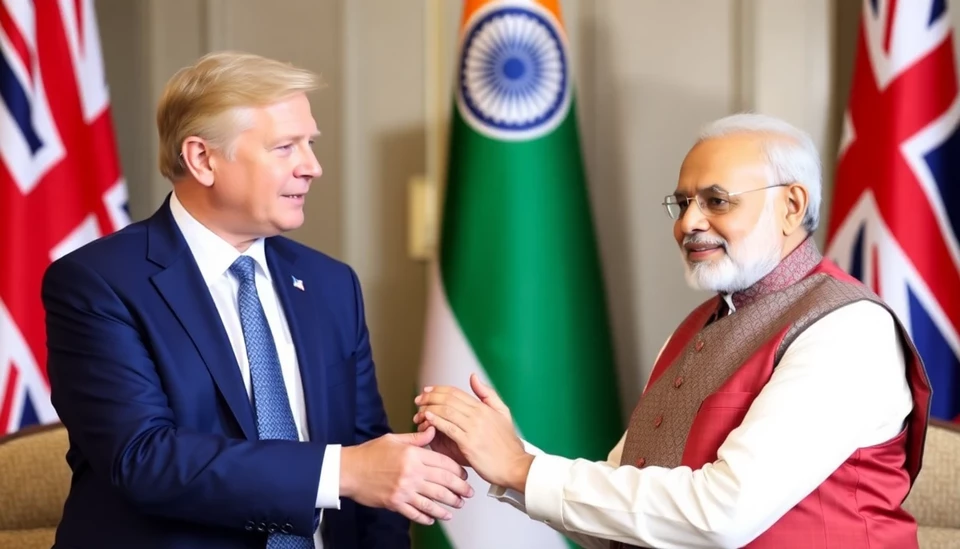
In a significant development in international trade relations, India and the United Kingdom have announced their intention to resume free trade negotiations that had previously stalled. This decision comes at a time when both nations are facing increasing pressures from potential North American tariff hikes that could disrupt established trade practices. The renewed discussions signal a proactive approach from both sides to secure economic advantages before potential policy shifts occur in the United States.
The stalled talks, which have broader implications for the post-Brexit UK and the rapidly growing Indian economy, resumed following high-level meetings between officials from both nations. UK Secretary of State for International Trade is optimistic, asserting that establishing a free trade agreement (FTA) with India could yield benefits exceeding £28 billion over the next decade, further bolstering trade ties.
During preliminary negotiations that began prior to the pandemic, discussions had made headway, focusing on market access, tariff reductions, and services. However, various geopolitical and domestic factors led to delays and hesitations. The re-opening of these talks is now seen as pivotal, especially in light of a looming threat from U.S. tariffs that could impact numerous sectors across various economies.
The United Kingdom finds itself at a crossroads as it seeks to deepen relationships with Commonwealth nations while simultaneously navigating its position post-Brexit. India, with its vast market potential and vibrant economy, is viewed as a critical partner in enhancing the UK’s international trade strategy. Both countries recognize the strategic imperative of securing such an agreement to fortify their respective economic standings globally.
Moreover, the UK government is keen to reduce trade imbalances and enhance exports. The anticipated FTA aims not just to reduce tariffs but to expand service sectors such as technology, healthcare, and education, which could yield significant mutual benefits. Recognizing the critical nature of these talks, representatives from both nations have expressed enthusiasm about the potential outcomes, emphasizing collaboration as a core element of their strategy moving forward.
As the discussions progress, stakeholders are keenly observing how these trade talks will evolve against the backdrop of changing global dynamics, particularly with the potential shifts in U.S. trade policy. The expectation is that any agreements reached will not only enhance bi-lateral trade but could also present a counterbalance to U.S. economic influence in the region.
As both nations navigate these complex issues, the ongoing dialogue signals a commitment to fostering robust economic engagement and partnership in an increasingly interconnected global economy.
With both sides prepared to put in the necessary work, the world will be watching closely as negotiations unfold, hoping for a resolution that could set new agendas in international trade and cooperation.
#IndiaUKTrade #FreeTradeAgreement #GlobalEconomy #InternationalRelations #TradeNegotiations
Author: Laura Mitchell




